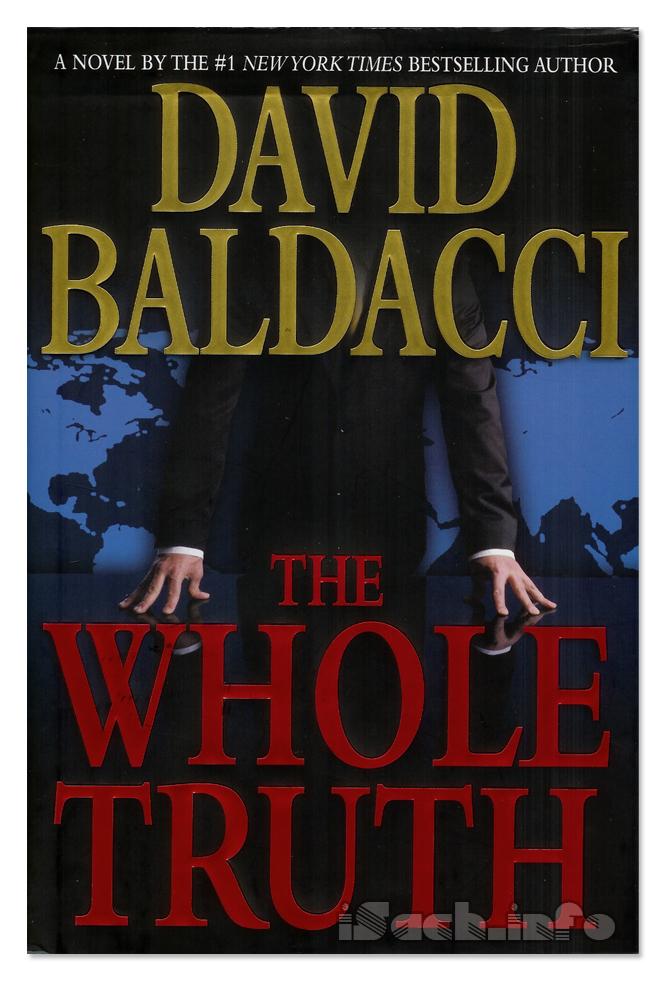Chapter 43
A
N HOUR AFTER ANNA FISCHER WAS KILLED, Nicolas Creel’s BlackBerry buzzed. He rolled over in bed, picked it up, hit a key, and five words appeared on the screen: “All’s well that ends well.” It was from Caesar. Who would have thought such a man would have been a fan of the Bard? Creel checked his watch. Afternoon in London, right on schedule. He rolled over and went back to sleep.Later that evening, Creel smoothed down his tuxedo jacket, adjusted his French cuffs, and rose from his seat to thunderous applause. As he strode to the lectern, he shook the hand of the governor who’d just introduced him to an elite crowd that had paid five thousand dollars a pop for the privilege of seeing Nicolas Creel named man of the year for his philanthropy, the latest of which had been a donation of eighty million dollars for a state-of-the art cancer wing for children at a major hospital. The wing was not named after Creel, though. He had enough buildings named after him. He’d christened it in his late mother’s honor.
The governor of California had been effusive in his introductory remarks, calling the billionaire arms manufacturer a man for the ages with unsurpassed vision and unbridled compassion for others. Had Creel’s mother been alive, she no doubt would have shed many tears over that description. Creel’s eyes never even grew moist. It was just not his way. As with everything else in his life, every action had multiple motivations. Tonight’s event was no exception. Indeed it was money well spent. He had no problem helping kids who were sick. He’d nearly lost his oldest son to leukemia, which had spurred his interest in cancer research and treatments. He might be more greedy and ambitious than most, but he was far more successful than most too.
He actually had a generous heart. And better still, he had plenty of money. Over the decades Creel had given away billions to charity, far more than most of his fellow super-rich. And spreading the wealth made you feel good, made others feel good, and did some good all at the same time. It was also a fine way to honor his mother, to give her the immortality she deserved. But doing good works gave you friends in high places when you needed them. He had a feeling the governor of California and the state in general would be his friend for life. It was a win-win, a classic no-brainer. At eighty million bucks it was actually cheap.
He drew his speech from his pocket and looked out over the adoring crowd, suddenly wondering if there was a brand-new Miss Hottie out there. There was a good reason he’d left his wife at home. It was definitely time for a change there. She was bored with him and the only asset she possessed of interest to him had long since lost its appeal. He figured he’d opt more for brains this time so long as the lady had an exceptional exterior. He was a man who loved beautiful things around him.
He started off his remarks with a reference to what the media were now callously terming the London Massacre. He then asked for a few moments of silence in respect for those killed. He thought it a nice touch. He bowed his head and even thought of the dead and their families. With this his eyes did grow moist. It really was horrible. He was sorry he’d had to do it. If there had been any other way. What a tragedy. The world had grown so damn complicated and with it good and bad lines blurred to near extinction.
He looked back up and saw a sea of glistening eyes staring back at him. It was a magical moment, it really was. In those few precious moments, he and the audience had bonded. They were in this together. The world had grown a bit closer with this calamity, just as it did when other disasters had occurred. From adversity, from catastrophe come astonishing things. It was no coincidence that the greatest American presidents had all served during wartime. Armed conflict did that to you. Or rather for you. You either soared or crashed. There was no in-between, there was nowhere to hide. It was the most perfect scorecard in all of history. It was only with loss, Creel believed, that people fully realized the potential of life.
As he finished his remarks about ten minutes later and returned to his seat, humbly playing down the lengthy standing ovation he received, he reflected for a moment on Caesar’s message.
It really had been a remarkable evening, even for him!
Caesar and Pender no doubt thought that this was all about money, about bringing Ares back from the corporate dead. That certainly was one of the reasons, but only one and not the major motivation at that. Only he, Nicolas Creel, realized why he was doing this. And if people had known his reasons, he was certain many would applaud them. Sometimes the ends really did justify the means. In that old cliché, so abused and discredited over the years, existed a gem of wisdom that Creel believed others were finally starting to comprehend.
The ends did justify the means, but only if the ends were truly critical enough. Yet few were. In every endeavor humanity undertook there was an evaluation done. Whether it was to give expensive medical treatment to a ninety-year-old who had little time left anyway, or to stop oil fields from being exploited so that a certain owl could survive, or to spend trillions of dollars and sacrifice hundreds of thousands of lives to establish a beachhead of democracy in Muslim lands in the hope that freedom would spread. Those decisions were made every day. And no matter which way they were decided someone was hurt, often many died, many more lives were destroyed, but the decision had to be made. And that was exactly what Creel had done. Indeed, he had executed it with far more planning and thought than most governments exercised when contemplating something as monumental. Above all, Creel had an exit strategy, whether his plan worked or not.
In the reception that followed the awards ceremony, he did meet several women who might make the cut as future companions, not wives: he’d made up his mind on that. They were always at these types of events, even the ones with brains and degrees from fancy schools. He was just too damn rich and socially well connected to ignore.
Later, as the tall, elegant woman he’d selected to take out for a drink stepped into his limo, Creel had a sense that nothing would ever go wrong in his life again. It was a vitally empowering and—even for men like him—rare moment.
He intended to savor it for as long as he could. For Creel well knew that tomorrow all of that could change.
A smart man understood that victory was not inevitable. An even smarter man knew that defeat was never really total if you figured out how to handle the aftermath with skill and just the right spin.
And the smartest men of all, even when they lost, they actually won.
Nicolas Creel had always considered himself to be just such a man.



 ePub
ePub A4
A4